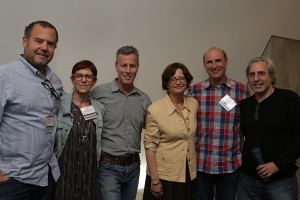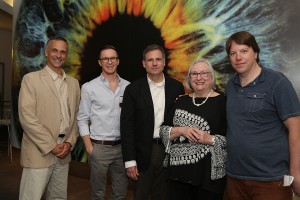Last week, I was in New York to receive the Benjamin E. Mays award from the A Better Chance Foundation for our work at increasing diversity in higher education. While in the city, I took the opportunity to evangelize for liberal education in conjunction with “Beyond the University.” I very much enjoyed my conversation with Leonard Lopate at WNYC, and I also wrote a piece that first appeared on The Daily Beast and is now on the Huffington Post.
It is crucial to support efforts to reduce student indebtedness and increase access to higher education. However, we should beware of those who want to turn this moment of educational reform into a program of vocationalism and tracking as a substitute for liberal education.
How to Destroy College Education
In America we fight about education. One of the key struggles today is centered on whether we should retool the college years so that we get students to be “job ready” and tracked into some specific task needed in the economy now. This retooled version of instrumentalism is diametrically opposed to our great tradition of liberal education that envisions learning as a vehicle for social mobility and effective citizenship. This tradition stretches back to the foundation of the country. “Wherever a general knowledge and sensibility have prevailed among the people,” John Adams wrote, “arbitrary government and every kind of oppression have lessened and disappeared in proportion.”
But alongside commitment to education, there have always been suspicions about what really went on in colleges. As I show in Beyond the University: Why Liberal Education Matters, from Benjamin Franklin to today’s Internet pundits, critics of higher education have attacked its irrelevance and elitism–often calling for more useful, more vocational instruction. Franklin skewered learning that took pride in its freedom from labor (in its uselessness) as just a mask for snobbism–learning “to exit a drawing room properly.” Contemporary commentators question whether young people learn anything useful in their “four year party” that culminates (occasionally) with a diploma. Education, from this perspective, is a luxury bought with a loan.
But in his day Franklin went on to propose a compelling version of a broad education that was useful without being narrowly instrumental. And Thomas Jefferson thought that nurturing a student’s capacity for life-long learning within a university structure was necessary for science and commerce while also being essential for democracy. Neither believed a university should merely train young people for jobs that old folks had already picked out for them–but neither thought that college should be merely academic.
Over the past several years, however, we have seen a new sort of criticism directed at the academy. These critics no longer claim to be in search of “true liberal learning,” but instead call for an education that simply equips people to play an appropriate role in the economy. Economists wanting to limit access to education question whether it’s worth it for mail carriers to have spent time and money learning about the world and themselves when they could have been saving for a house. Sociologists wonder whether increased access to college creates inappropriate expectations for a work force that will not regularly be asked to tap into independent judgment and critical thinking. And then there’s the cost of a liberal education, its so-called disconnect from the real world, its political correctness. Columnists write that we must make it more relevant, while politicians growl about making it more efficient. Through “disruptive innovation,” we are told, educational institutions can be “disintermediated”– like middlemen cut out of a market transaction.
Many today are calling for us to create a much more vocational style of teaching. They claim that in today’s economy we should track students earlier into specific fields for which they seem to have aptitude. This is exactly the opposite of the American tradition of liberal education. From the revolutionary war through contemporary debates about the worth of college, American thinkers have emphasized the ways that broad, pragmatic learning enhances the capacities of the whole person, allowing individuals greater freedom and an expanded range of possible choices. Liberal education in this tradition means learning to learn, creating habits of independent critical and creative thinking that would last a lifetime.
The effort today to limit higher education to only a certain class of students or to constrict the college curriculum to a neat, instrumental itinerary is a critical mistake, one that neglects this deep current of humanistic learning. Under the guise of practicality, this is old-fashioned, elitist condescension combined with a desire to protect the status quo of inequality.
Since the founding of this country, education has been closely tied to individual freedom, and to the ability to think for oneself and to contribute to society by unleashing one’s creative potential. The pace of change has never been faster, and the ability to shape change and seek opportunity has never been more valuable than it is today. If we want to push back against inequality and enhance the vitality of our culture and economy, we need to support greater access to a broad, pragmatic liberal education.





![photo[8]](https://roth.blogs.wesleyan.edu/files/2014/01/photo8-300x224.jpg)
![photo[9]](https://roth.blogs.wesleyan.edu/files/2014/01/photo9-300x224.jpg)